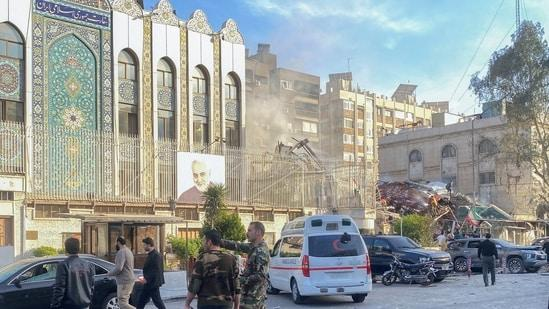There seems to be a hidden hand that pushes the players, and not anyone you would think of at first.
Over the last few months, we are witnessing a long line of assassinations of mainly top operatives, allegedly performed by Israeli units, acting in Lebanon, Syria and Iran. This should not boggle our minds, nor should we doubt the incentive. But something has changed, not in motivation and not in resolve, but in essence. The front page is clear and says as follows: Iran has masterminded the Attack on Israel and now it’s payback time. But Iran has been a nemesis for decades, and the list of targets makes no real sense, at least not at first.
But something else has changed! For years there were no assassinations in Lebanon, never close to an embassy and surely not so many in such a short period of time. We will not go into the grey figure, all those cases that the M.O. did not point directly at Israel or the US. The real change, to start with, is the accurate and timely intelligence needed to allow these operations. Such operations take time, are thoroughly planned and meticulously performed, yet almost every two weeks there is yet another hit, and mind you, not all of them are made public.
Someone is providing the needed intel, someone who knows where the targets are, where they will be, exactly when and exactly with what level of security. There is no other way to allow so many accurate and successful attacks in such a short period of time. And the intel is not passive, it is active in favor of the attacker, as in the case of Saleh al-Arouri, and even more in the case of Mohammad Reza Zahedi, who had to be moved out of a secure and fortified site, to be exactly where and when it was convenient to get him and his entourage in one go. In this case this included his number two, Mohammad Hadi Haj Rahimi, soon to take over command.
When you look at the lot, you will find they have mainly two things in common. First and foremost, they are all “best friends” with Hassan Nasrallah, the leader of Hezbollah in Lebanon. Secondly, they were strongly opposed to any tolerance towards the West, mainly the US. This was a crucial fault, one that cost them their lives. But why!? What has changed!?
What really has changed is the Iranian commitment, mainly to survival. Iran has pushed too many buttons, has been caught involved in too many terror attacks, too many times has Iran acted against US interests, taken side with Russia, with China. As time goes by, even a democratic led US will not tolerate it, let alone should Trump return. So now, Iran is negotiating some kind of a peace treaty, or as they call it, a non-aggression pact, with the US. Although the negotiations are handled by the supreme leader’s close consultants, some of the hardliners got wind and rumors started spreading. Very soon the supreme leader’s chancellery had to take steps to halt this landslide, make sure it doesn’t get in the way.
On the other hand, the hardliners were already enroute to meet up with Hezbollah, to ensure the financial and operational survival of the main Iranian proxy, should Khamenei eventually decide to sacrifice Nasrallah. Thing is, the decision was already made. To many in the upper echelon of Tehran these steps were essential not only to allow the survival of the regime on an economical and political level, but also to trim down the aspirations of the IRGC to take over the leadership of the land.
The only question is, who is next? Nasrallah?
 Eurasia Press & News
Eurasia Press & News




